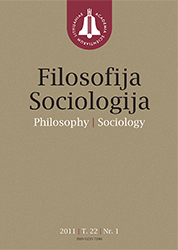Defense of Epistemic Reciprocalism
Defense of Epistemic Reciprocalism
Author(s): Seungbae ParkSubject(s): Epistemology, Philosophy of Science
Published by: Lietuvos mokslų akademijos leidykla
Keywords: empirical adequacy; epistemic reciprocalism; scientific antirealism; scientific realism; truth;
Summary/Abstract: Scientific realists and antirealists believe that a successful scientific theory is true and merely empirically adequate, respectively. In contrast, epistemic reciprocalists believe that realists’ positive theories are true, and that antirealists’ positive theories are merely empirically adequate, treating their target agents as their target agents treat other epistemic agents. Antirealists cannot convince reciprocalists that their positive theories are true, no matter how confident they might be that they are true. In addition, reciprocalists criticize antirealists’ positive theories exactly in the way that antirealists criticize their epistemic colleagues’ theories. Reciprocalism is a better epistemic policy than realism and antirealism in the epistemic battleground in which we strive to be epistemically safe vis-à-vis our epistemic colleagues’ theories and strive to convince our epistemic colleagues that our theories are true.
Journal: Filosofija. Sociologija
- Issue Year: 2017
- Issue No: 1
- Page Range: 56-64
- Page Count: 9
- Language: English

